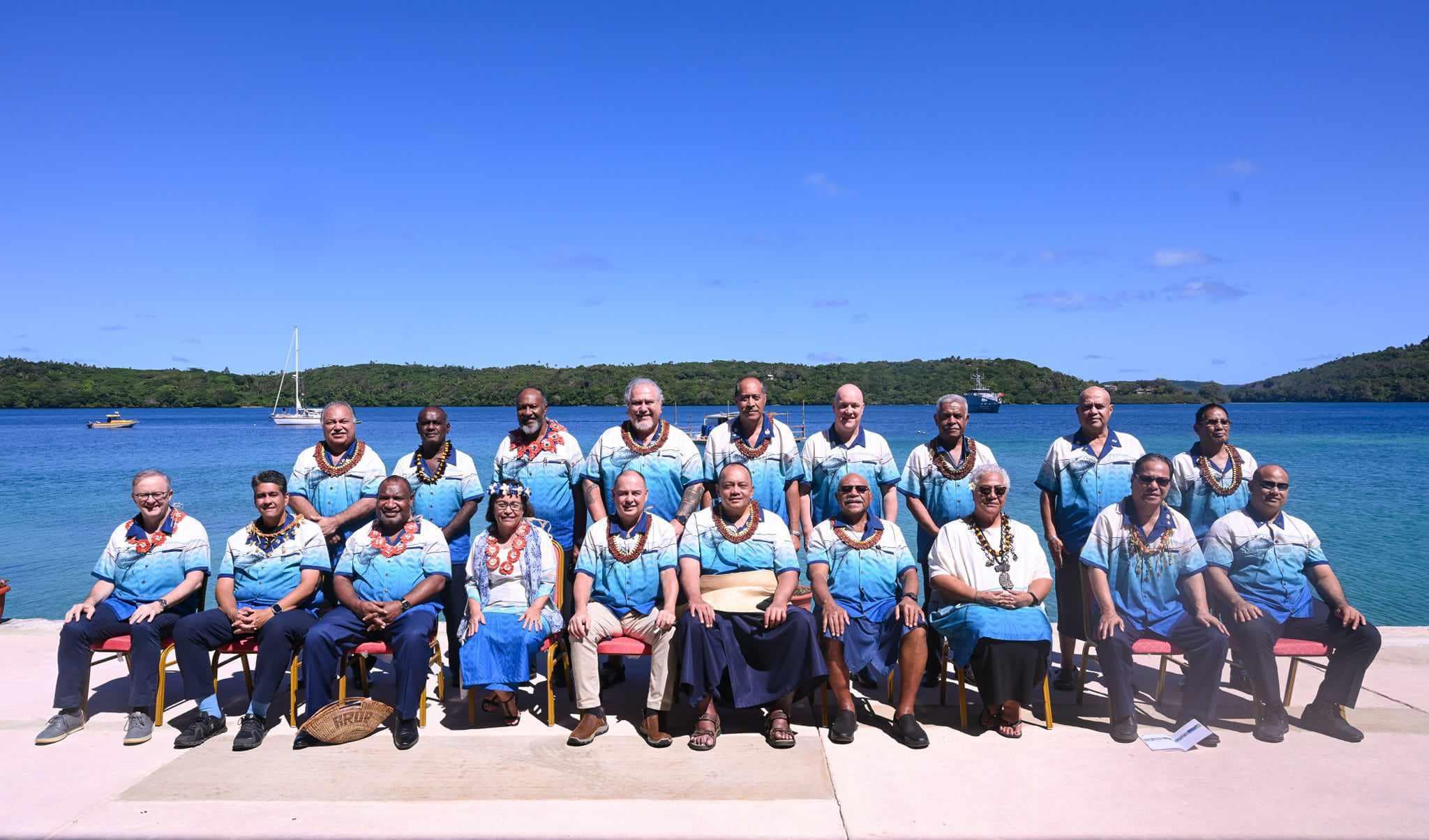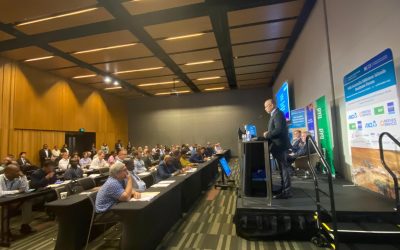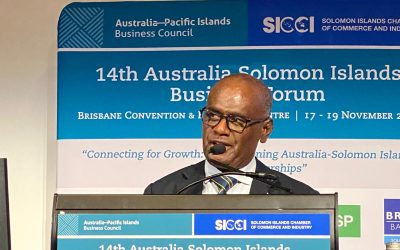The outcomes of the 53rd Pacific Islands Forum (PIF) Leaders Meeting held in Tonga in August present opportunities for Australian businesses to step up engagement with island nations, particularly in the fields of sustainable development, digital transformation, renewable energy, and infrastructure. The theme, “Transformative Resilient Pasifiki: Build Better Now”, guided discussions on enhancing regional resilience in the face of climate change and economic challenges. One of the suggestions was about public-private partnerships (PPP) as an essential tool for sustainable growth. This creates significant opportunities for Australian businesses, particularly in infrastructure, engineering, and construction. By partnering with Pacific governments, firms can contribute to building resilient infrastructure like climate-proof roads, ports, and energy grids that help mitigate the impacts of natural disasters while fostering economic development.
Renewable energy was another focal point, with Pacific leaders pushing for a transition away from fossil fuels. Australian businesses specialising in solar, wind, hydrogen and hydroelectric technologies are well-positioned to help Pacific Island nations meet their sustainability goals. Additionally, green finance is becoming an important mechanism to fund these climate initiatives. Australian financial institutions could play a key role by financing projects that promote environmental sustainability and resilience.
Another important area discussed at the forum was digital transformation, particularly the need to improve digital connectivity across the Pacific. This presents an opening for Australian telecommunications firms, software developers, and IT service providers to enhance broadband infrastructure, e-commerce platforms, and cybersecurity across the region. With many Pacific Island nations facing geographical challenges, there is also a demand for telemedicine and remote work platforms, providing Australian tech companies with the opportunity to offer solutions that improve healthcare access and enable businesses to function remotely.
Climate change remained at the forefront of discussions, with a collective action plan aimed at mitigating its impacts on Pacific economies. For Australian businesses, this translates into opportunities to provide climate-smart agricultural solutions, coastal protection, and sustainable tourism development. As Pacific nations strive to protect their natural resources, Australian companies can offer marine conservation technologies and sustainable farming practices that promote environmental stewardship while boosting local economies.
Moreover, the forum addressed the brain drain impacting sectors like healthcare and education across the Pacific. To retain skilled professionals, there are opportunities for Australian educational institutions and vocational training providers to develop capacity-building programs that offer training and upskilling. By enhancing local talent pools, these programs will contribute to creating a stable workforce, which is essential for the growth of Pacific Island businesses.
Tourism remains a key industry for Pacific nations, and the forum’s discussions on sustainable tourism create further opportunities for Australian businesses in the tourism and hospitality sectors. There is an increasing demand for eco-friendly resorts and sustainable travel experiences, and Australian entrepreneurs can invest in eco-lodges and cultural tourism, supporting Pacific economies while promoting responsible tourism.
Photo: Pacific Leaders at the 53rd Pacific Islands Forum Leaders Meeting: Official Photo from PIFS.



